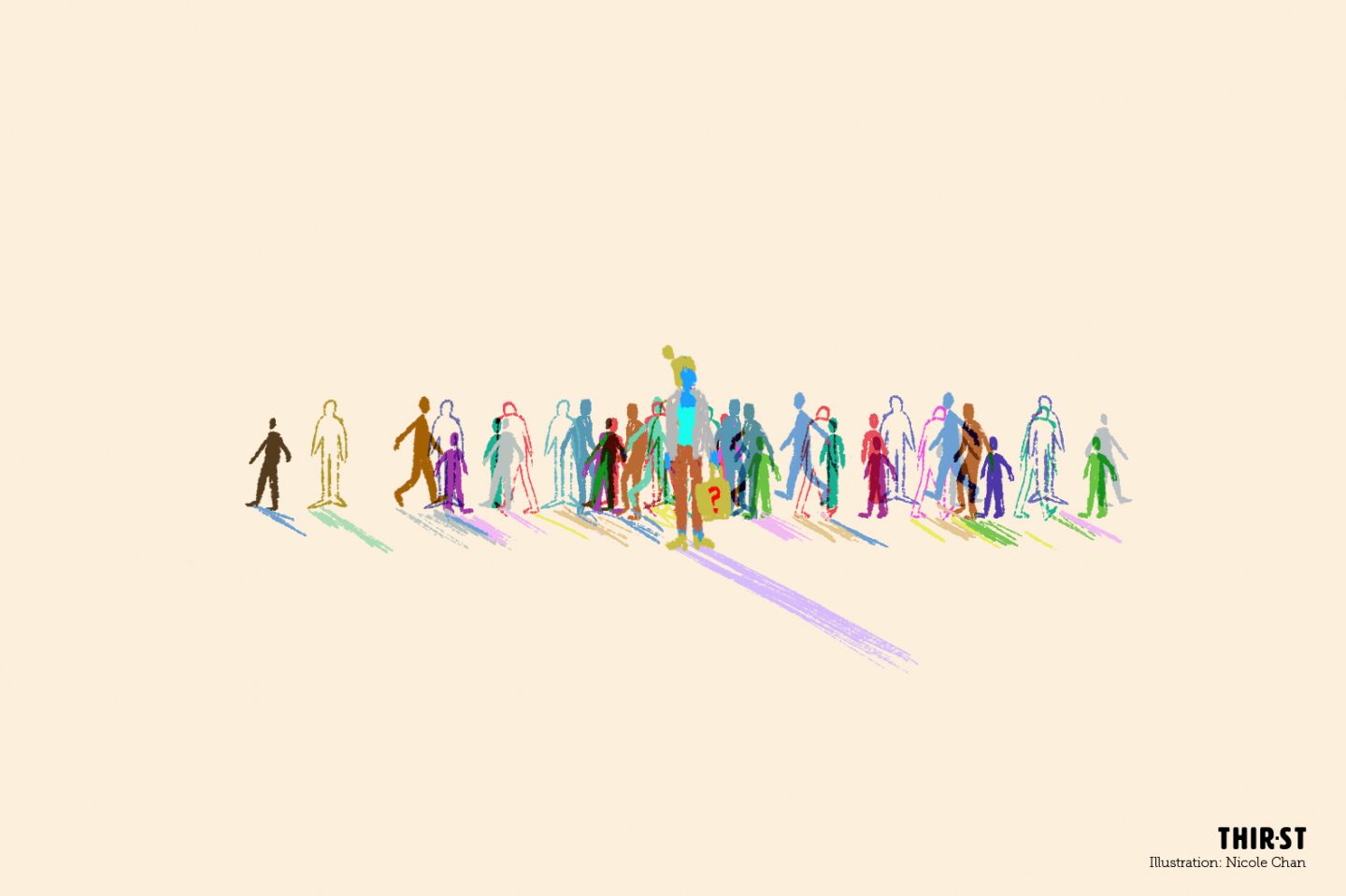When I was in school, I consistently topped the class in maths and sciences.
I was a straight-A student except for the consistent B’s I got for languages and humanities. I went to top schools and I was always referred to as “the smart one” among friends – the go-to person when my friends needed help with their homework.
I represented my school at Science Olympiads and even got a “Merit” award for the Chemistry Olympiad. I took H3 subjects in the sciences at A-Level, so my friends and family were certain that A-Level H2 subjects were going to be sure A’s for me.
But when I took the A-Level Chemistry examination, there was one paper that I felt was difficult. Deep inside, I kept my fingers crossed I would still get an A.
I got an A for the Chemistry Preliminary Examination, and I thought: “No one actually goes on to do worse in the A-Levels right?” I always believed that the A-Levels was the part where people suddenly got their As despite having never got one before.
On the day they released the A-Level results, I had lunch with my friends. All of us knew that the top students would get called up and congratulated by the school early in the morning. So my friends asked me: “Jia Qian, did you get the phone call this morning?”
I didn’t. Now imagine my shock and sadness when I finally saw my result slip – B for H2 Chemistry.
My parents were just as shocked and I’ll always remember their response: “What? I’ve always expected you to get an A since day one. You’ve always aced chemistry and topped your class – your school even chose you to go for the Chemistry Olympiad!”
Our job and profession are temporal, but our relationship with God is eternal.
I encountered more setbacks in the months following the released results. I faced countless rejections from all the scholarships and top overseas universities I had applied for.
Eventually I accepted an offer to study physics at NUS, though it was definitely not my first choice. My dream was to study physics at Imperial College London with an A*STAR scholarship.
So throughout university, I would always feel a tinge of sadness when friends asked about what scholarship I was on. “Parents’ Scholarship” was the answer I usually gave, but deep down, I had become uncertain about the future. I envied my friends who were scholarship holders – assured of jobs after graduation.
That was 7 years ago, and since then, I have been on an adventure. I experienced different industrial attachments during school, entered the semiconductor industry, went back to school, and now I’m in my second career learning the ropes as a software engineer in a local bank.
It’s been a long journey, and I’ve learnt some very important lessons along the way.

Our identity and security doesn’t come from grades or jobs. They come knowing that we are children loved by our Father.
“The Spirit you received does not make you slaves, so that you live in fear again; rather, the Spirit you received brought about your adoption to sonship. And by him we cry, “Abba, Father.” The Spirit himself testifies with our spirit that we are God’s children. Now if we are children, then we are heirs—heirs of God and co-heirs with Christ, if indeed we share in his sufferings in order that we may also share in his glory.” (Romans 8:15-17)
As a professional in the finance industry, there are days I’m tempted to think that I’ve made it. It’s much wiser to pray against idolising my job and attaching my identity to my profession. After all, our job and profession are temporal, but our relationship with God is eternal.
There is no need to compare salaries across different professions or feel envious if someone earns more than you. While we should all be good stewards of money and save regularly, there is no need to be doubtful about provision.
God is our Provider. This facet of His character is seen countless times in both the Old and New Testaments. You need only to read classic verses like, “The Lord is my shepherd, I shall not be in want”(Psalm 23:1) to know this. Other good ones include Genesis 22, where Abraham places his faith in God as provider and Matthew 6:25 -33.

If we identify ourselves first as God’s children – how then should we respond?
One practical way is to skip the “What do you do for a living?” question when meeting newcomers in a Church setting. Because our professions really don’t define us. God places us in different fields according to His will, and we are all His beloved children.
A Biblical example of how profession does not matter can be seen in how Jesus called his twelve disciples (John 1:35-51). His disciples had different jobs: Some were tax collectors, others were fishermen or even zealots. Commentaries describe that while fishing was highly regarded at that time, tax collectors and zealots were not as well regarded – even despised. Tax collectors were deemed as extorters of money, while zealots were people who wanted political revolution.
Jesus called them all.
The next time you miss out on your dream job or scholarship, remember that your identity in Christ is constant – God is still your Provider. The hierarchy is this: You are a Christian who happens to be a policeman. Or you’re a Christian who happens to sell street food.
You are first and foremost a child of God – ready to do His will.









